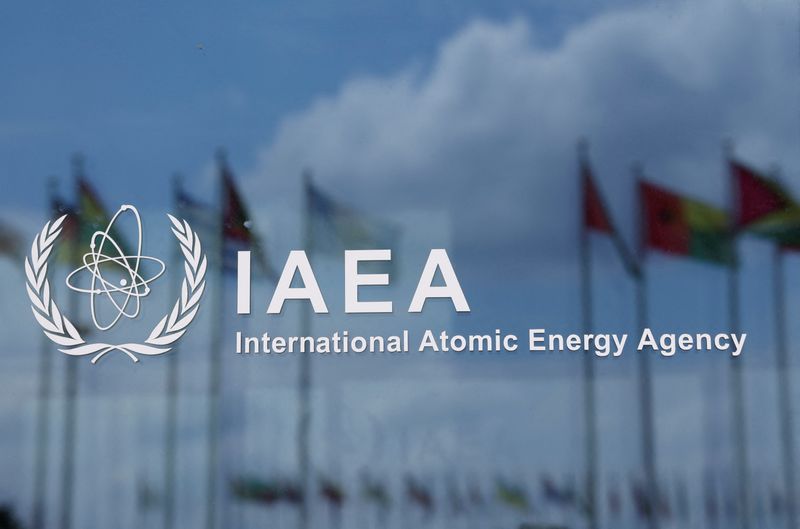IAEA Board passes resolution against Iran on cooperation, inspectors
2024.06.05 13:01
By Francois Murphy
VIENNA (Reuters) -The U.N. nuclear watchdog’s 35-nation Board of Governors passed a resolution on Wednesday calling on Iran to step up cooperation with the watchdog and reverse its recent barring of inspectors despite concerns Tehran would respond with atomic escalation.
Twenty countries voted in favour and two against – Russia and China – with 12 abstentions, diplomats said. It follows up on the last resolution 18 months ago that ordered Iran to comply with a years-long International Atomic Energy Agency (IAEA) investigation into uranium traces found at undeclared sites.
While the number of sites under investigation has been narrowed to two from three, Iran still has yet to give the IAEA satisfactory answers on how the traces got there.
“The need for the Board to hold Iran accountable to its legal obligations is long overdue. Iran must urgently, fully and unambiguously co-operate with the Agency,” Britain, France and Germany said in a statement to the Board on the resolution they proposed.
Since the last resolution the list of problems the IAEA faces in Iran has grown, and the new text also called on Iran to address several of those issues.
In September Iran barred many of the IAEA’s top enrichment experts on the inspection team, which IAEA chief Rafael Grossi called “disproportionate and unprecedented” and a “very serious blow” to the agency’s ability to do its job properly.
“(The Board) calls on Iran to reverse its withdrawal of the designations of several experienced Agency inspectors which is essential to fully allow the Agency to conduct its verification activities in Iran effectively,” the resolution said.Grossi met officials in Iran last month in the hope of breaking a deadlock on the particles probe and the inspectors but also to expand IAEA monitoring to parts of Iran’s nuclear programme that were covered under a 2015 deal with major powers.
The deal, which traded restrictions on Iran’s nuclear activities for sanctions relief, unravelled after then-President Donald Trump pulled the United States out of it in 2018.
Iran responded by abandoning the deal’s nuclear provisions, including IAEA monitoring of activities such as the production of parts for centrifuges – machines that enrich uranium. The agency now does not know how many Iran has or where.
U.S. CONCERNS
The resolution called on Iran to implement a vaguely worded March 2023 joint statement that the IAEA took to be a sweeping pledge of cooperation, including on monitoring and the installation of surveillance cameras.
Iran is now enriching uranium to up to 60% purity, close to the 90% of weapons grade, and has enough material enriched to that level, if enriched further, for three nuclear weapons, according to an IAEA yardstick.
Western powers say there is no credible civilian reason for that. Iran says its aims are entirely peaceful but officials have recently said it could change its “nuclear doctrine” if it is attacked or its existence threatened by arch-foe Israel. That has prompted alarm at the IAEA and in Western capitals.
“Iran, a country with a past nuclear weapons program and whose enrichment program started in secret, is amassing a growing stockpile of highly enriched uranium, and now boasts of being on the precipice of nuclear weapons capability,” the United States said in a statement to the Board of Governors.

The U.S. statement also echoed concerns Washington expressed to its European allies before it finally backed the resolution.
“Iran has repeatedly responded to the resolutions adopted by this Board in recent years with escalation instead of cooperation, including by producing 60% enriched uranium at its heavily fortified, underground facility at Fordow,” it said.








